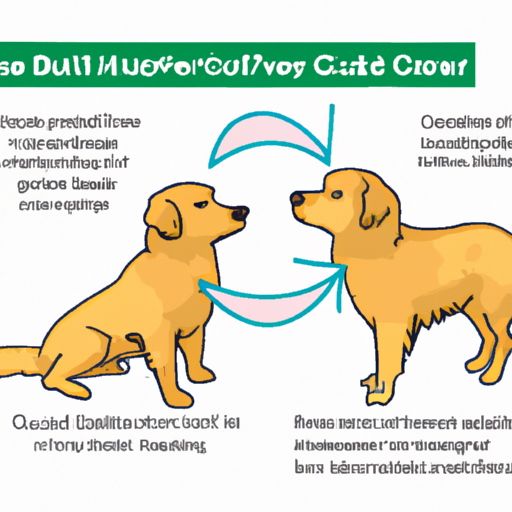Understanding the Canine Hiccup
You’ve probably experienced hiccups yourself, those annoying, involuntary spasms that come and go as they please. Well, dogs can also get hiccups. Just like in humans, canine hiccups are caused by involuntary contractions of the diaphragm.
- The diaphragm is a muscle that separates the chest from the abdomen.
- When it contracts, it allows your dog to breathe in air.
- If it contracts irregularly, hiccups can occur.
While hiccups in dogs are generally not a cause for concern, they can be quite annoying for your furry friend.
Common Causes of Hiccups in Dogs
There are several reasons why your dog might get hiccups. Here are a few common culprits:
- Eating or Drinking Too Quickly: Just like in humans, consuming food or water too fast can bring on a bout of hiccups.
- Excitement or Stress: Dogs can get hiccups when they’re overly excited or anxious about something.
- Cold Temperatures: Cold weather can sometimes cause hiccups in dogs, just as it can in people.
How to Cure Hiccups in Dogs
Here are a few tried-and-true methods for curing hiccups in dogs:
-
Slow Down Meal Times: If your dog tends to eat or drink too quickly, consider using a slow feeder bowl. This can help slow down their eating and drinking, thus reducing the chances of hiccups.
-
Keep Them Calm: If your dog gets hiccups when they’re excited or anxious, try to keep them calm. This might mean removing them from the stressful situation or using calming techniques such as petting or soothing music.
-
Keep Them Warm: If cold temperatures seem to bring on the hiccups, make sure your dog is kept warm. This could mean a cozy blanket or a heated dog bed.
| Method | Explanation |
|---|---|
| Slow Down Meal Times | Use a slow feeder bowl to reduce fast eating and drinking |
| Keep Them Calm | Remove them from stressful situations and use calming techniques |
| Keep Them Warm | Ensure your dog is kept warm during colder temperatures |
When to See a Vet
While hiccups are generally harmless, there are times when you should seek veterinary attention. If your dog’s hiccups persist for more than a few hours, or if they’re accompanied by other symptoms like coughing, wheezing, or difficulty breathing, it’s time to consult a vet. It’s better to be safe than sorry when it comes to your furry friend’s health.
Frequently Asked Questions
Q: Are hiccups dangerous for dogs?
A: In most cases, no. Hiccups are usually harmless, but if they persist for several hours or are accompanied by other symptoms, consult a vet.
Q: Can I prevent my dog from getting hiccups?
A: While you can’t completely prevent hiccups, slowing down meal times, keeping your dog calm and warm can help reduce their occurrence.
Q: What if my dog gets hiccups frequently?
A: If your dog frequently gets hiccups, it could be a sign of an underlying health issue, and you should consult with a vet.
Remember, hiccups are usually nothing to worry about, but if you’re ever in doubt, consult with a professional. After all, your dog’s health is always worth it.



